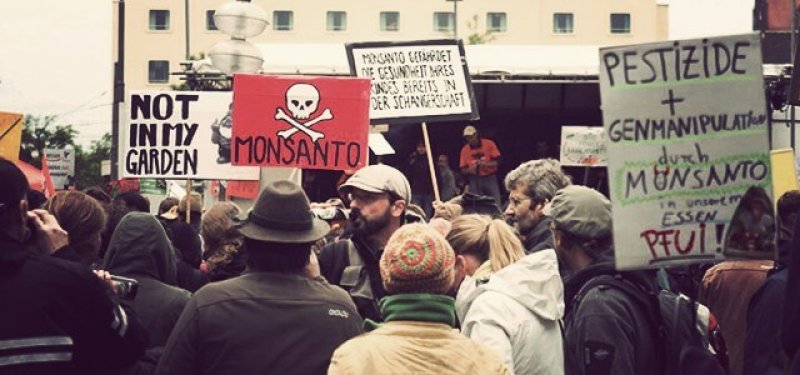With a new initiative, NGOs in Germany are seeking authority over the approval of biotechnology products such as pharmaceuticals and seeds. They want to impose a special tax on biotech companies. The money would be used to fund regulatory-relevant “precautionary risk research.” The fund would be controlled by environmental and consumer protection associations.
For several years now, not only regulatory agencies but the entire approval process of controversial products and new technologies have been under constant fire from NGOs as well as from left and green parties (including parts of the ruling coalition). If the scientific review by the relevant authorities does not support the political expectations and demands of the NGOs, they immediately accuse government officials of being too close to the industry (“revolving door”) and reviewing industry studies only superficially and uncritically.

Meanwhile, their criticism is being expanded to include the regulatory approval process. It is common in all industrialized countries that, for approval, manufacturers have to certify that their products are fully compliant with all tests and regulations required by law (often through expert opinions and studies by independent institutes). NGOs attack this process by suggesting it opens the door to manipulation (“approved on the basis of industrial studies!”). They also claim the approach does not recognize the precautionary principle, which they attribute to the shortened formula of philosopher Hans Jonas: “Preferring bad prognosis over good prognosis means acting responsibly in respect to future generations.”
Their goal is therefore to transfer the approval of new products from state agencies into the hands of “civil society organizations.” This would move decision making into the hands of non-profit organizations that claim to stand for the common good and the protection of future generations.
NGO tax for biotechnology companies
Already, there are concrete political and legal considerations and strategies in place to enforce this concept. One of the documents, a legal opinion commissioned by an NGO in 2017, is now public. Already, a central demand of the report was raised in December 2017 by the NGO BUND (The German branch of Friends of the Earth), however at that time still focused on the authorization of plant protection products: “The necessary registration tests must not be carried out any longer by the applying pesticide companies but have to be carried out by independent scientific institutes. The regulatory authorities have to commission the studies. They must be financed through an industry-independent, managed fund, which is fed by fees charged to the applicant companies.”
It has now become clear: NGOs want their say in all products produced by genetic engineering and biotechnology. As a result, they are effectively reopening discussion about the approval of genetic engineering production methods and biotechnology medicines.
The author, Dr. Cornelia Ziehm, is an environmental lawyer and has long been advising Deutsche Umwelthilfe (German Environmental Aid), BUND, Foodwatch, IPPNW and others on environmental issues. The report, entitled “Models for the financing of precautionary risk research in the field of genetic engineering and biotechnology,” calls for a special tax to be imposed on biotech companies (an amount is not yet indicated). The funds would be used for “precautionary risk research” covering the “manufacturing and marketing of genetic engineering and biotechnology products” in the broadest sense, i.e., not only seeds, but also medicines.

It remains unclear whether it also would apply to genetically engineered enzymes, flavors, dyes, production organisms, cell cultures, vitamins, etc. The report calls for the appointment of an advisory board with members from environmental and consumer protection associations. This board would then decide about the details and scope of the respective “precautionary risk research” and the suitable contractors. Ziehm believes that such a levy or tax can be legally established and imposed on all companies of the biotechnology sector Germany.
Use of the funds and selection and details of the respective “precautionary risk research” organizations are not the subject of the report. But in the first chapter, the author offers suggestions on who should be trusted in the process: In her view, not credible are researchers “with ties to the gene and biotechnology industry” and academic researchers from universities and research institutions that used third-party funds from industry and business. She also mistrusts researchers funded by the Deutsche Forschungsgemeinschaft (DFG), as DFG also promotes “research oriented towards innovation and competitiveness rather than systematically reviewing risks to people and the environment.”
Who is left to judge? The standard answer, recently given by green veteran Simone Peter in a discussion about genome editing: “Did we deal in the 1980s in detail with nuclear researchers to argue against nuclear power plants? No. Because ethical, economic or social aspects are important for technology assessment, as with #CRISPR. I stick to it: No to #GMO!”
That leaves assessment by humanities scholars with no expertise in the intricacies of science and research who already constitute the majority of agricultural and genetic engineering experts at environmental and consumer protection NGOs.
The report follows the well-known NGO narrative. Conventional risk research is “driven by its own interest” and the competent governmental agencies pursue a “mere plausibility check” only, which “just understands the research results presented.” It also states:
However, original risk research does not take place in the state institutions or only in a relatively limited scope. In addition, one can identify a more or less close ‘proximity’ of employees of the state research and / or regulatory agencies to the biotechnology industry.
Thus, the arguments suggests that these groups do not sufficiently exercise their “duties to protect the population and the environment”. Explicitly mentioned are the Federal Office for Consumer Protection and Food Safety (BVL), the Federal Institute for Risk Assessment (BfR) and the European Food Safety Authority (EFSA).
Biotech industry as a threat
The report even goes one step further and states:
Neither the Genetic Engineering Act nor the Chemicals Act or the Food and Feed Code or any similar laws incorporate concrete rules for funding research. The same applies to the drug law. Research conducted in or on behalf of state institutions in the areas governed by these laws is therefore expected to be financed by non-earmarked tax via the general budget and the respective cost centers.
The author seems to consider this a scandal. She suggests, according to the polluter-pays-principle, companies bringing biotechnology products to the market need to pay not only for possible consequential damage, but also for all risk assessments and precautionary measures. “The polluter-pays-principle not only legitimizes measures that impose costs on the polluter in a direct sense (such as rehabilitation costs), but also costs for avoiding and reducing damage or burden.”
Biotechnology companies, whether they manufacture drugs or plant varieties, are no longer measured by their products saving lives and costs and creating quality of life, but by being responsible for all sorts of potential risks the public has to bear, just because they want to market products out of pure commercial interest. “Genetic engineering and biotechnology companies share a common interest, namely the production and marketing of substances and products from this very sector.” Therefore, producers of medical biotechnology products should also be required to finance the “independent” evaluation by NGOs of crops or plant protection products created with biotechnology.
The report concludes: “In the light of the above, it does not seem impossible to impose a levy on the manufacture and placing on the market of genetic and biotechnology substances and products in order to ensure precautionary risk research.”
The report states that the need for action arises primarily from the fact that the German Constitution and also relevant EU directives demanded “precautionary risk research.” This, however, has not taken place in government agencies, i.e. the state did not adequately fulfill its mission of providing “existential protection” for the lives and health of its citizens, of natural resources and animals.
Good chances for implementation
While it will not be easy to rebuild the approval process in Europe according to the demands of the NGOs, a modified German system seems entirely possible. It could mean adding further requirements to the approval procedures already in place.
First, despite all medical advances in the field, genetic engineering and biotechnology is still met with great mistrust by the public and viewed as a high-risk technology. The disapproval extends to a large part of the media, the judiciary and subordinate authorities. As an example, in the past, German judges have often granted some kind of legitimate right to self-defense to so-called field liberators, who devastated fields or greenhouses with GE test plants, just because the vandals claimed they had seen the living basis and the natural resources of the planet as being endangered by genetic engineering and biotechnology and that they thought it was their duty to intervene in this case of immediate danger.
Second, environmental and consumer protection associations already enjoy extensive special rights via a law granting them collective rights to initiate proceedings, which allows them to appeal against any major construction or infrastructure project. Objection has now become the rule, as it is lucrative to negotiate “donations” to wave objections.
Third, parallel licensing of many consumer goods (food, textiles, furniture, etc.) has been established already. Numerous associations issue meaningless seals and certificates (“GMO-Free”) and evaluate products according to non-transparent criteria. Anyone who does not submit to the rules of the game of these institutions, will sit on his goods after a public devaluation.
Fourth, the ruling coalition in Germany already has made clear it has no confidence in the relevant regulatory agencies by establishing a “Center for Environmental and Genetic Engineering” (FUG). The center — financed without a tender by the Ministry of Research (led by the Christian Democrats) and the Ministry of the Environment (led by the Social Democrats) — is run by an anti-GMO NGO, whose director is scientifically “qualified,” among others, through joint publications with the discredited anti-GM activist and homeopathy “researcher” Gilles-Eric Séralini.
The advisory board of the center only includes anti-GMO NGOs. FUG has been entitled to educate public authorities, politicians and the public about genome editing and other modern molecular biology procedures — which is an original task of federal authorities such as the Federal Office for Consumer Protection and Food Safety (BVL) and its Central Commission for Biological Safety (ZKBS) and the Federal Institute for Risk Assessment (BfR). Basically, it’s like the Ministry of Health commissioning an anti-vaccine organization, whose leader denies the existence of viruses, to educate the public on new vaccines.
Fifth, the co-governing SPD has entered the government with the explicit aim of reorganizing the approval of GM products by “putting more weight on GMO-critical research”.
In this climate, at least in Germany, everything that harms genetic engineering research and the biotechnology industry seems possible.
Ludger Wess is a science writer who has covered molecular biology and biotechnology since the 1980s. Prior to his career as a science writer, he was a molecular biology researcher at the University of Bremen, Germany. Follow him on Twitter @LudgerWess
This article originally appeared at Salonkolumnisten as KOMMT BALD EINE STRAFSTEUER FÜR GENFORSCHUNG? and has been translated and republished here with permission.































